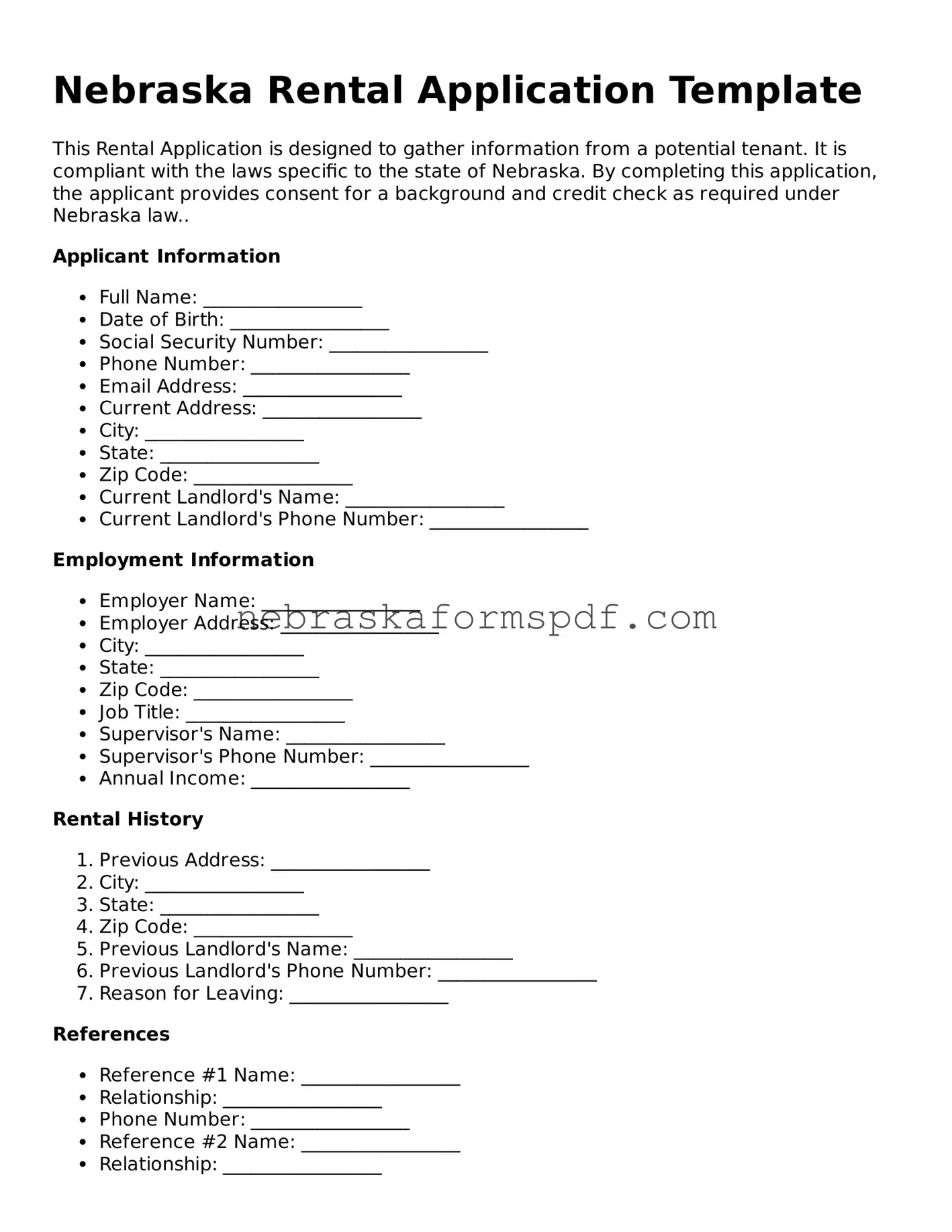Fillable Nebraska Rental Application Template
The Nebraska Rental Application form is a crucial document used by landlords and property managers to screen potential tenants. It gathers essential information to help determine a prospective renter's qualifications. This process aims to ensure a reliable and suitable tenant-landlord relationship.
Open Editor Here

Fillable Nebraska Rental Application Template
Open Editor Here

Open Editor Here
or
Click for PDF Form
Don’t exit with an incomplete form
Finish Rental Application online using a quick, guided process.